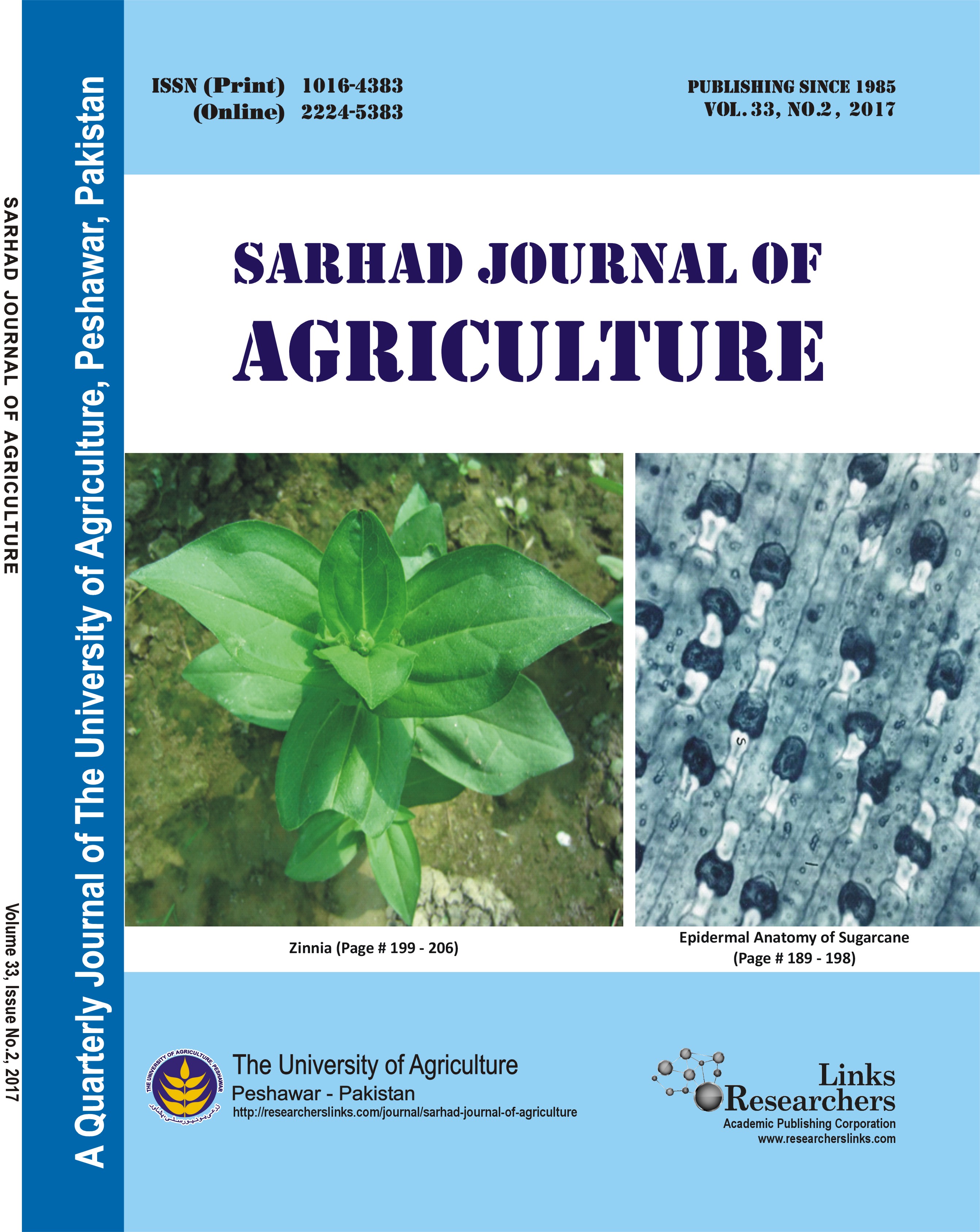Climate change and enormous increase in population are causing food insecurity situation in developing countries like Pakistan. Major food crops are seemed failing to fulfill food requirements hence, it is imperative to search for alternate food sources. Ber could be very handy alternate food crop if its yield and quality is enhanced. Grafting is a widely used technique to improve yield, disease resistance and fruit quality. This work aims to assess the effect of grafting on production, fruit ripening, physical and chemical properties, and nutritional quality of the fruit. Rootstock has a great influence on plant growth and development, including fruit ripening. However, the presence of a cross-interaction between grafting and rootstock is often neglected. To explore cross-interaction between grafting and rootstock on different fruit yield and quality traits, we examined the scion-root interaction of four scion cultivars viz. Delhi White, Suffen, Karela and Mahmud Wali during March-April 2013-14. After the establishment of plant, data were recorded for yield and fruit quality traits during three consecutive years (2016-19). Results showed that Dehli White grafted plants produced maximum yield kg/plant (60.33, 71.43, 78.00 ) followed by Mehmud Wali, Karela and Suffen scion grafts. Suffen grafted plants produced better quality fruits in terms of total soluble solids (TSS) (14.67, 15.45, 16.56 Brix0), pH and Ascorbate content followed by Karela, Mehmud Wali and Dehli White scion graft. Based on findings of the experiment, it could be recommended that Mahmud Wali and Suffen scions should be used to be propagated on local rootstocks to enhance yield as well as fruit quality that will contribute in ensuring food security.







